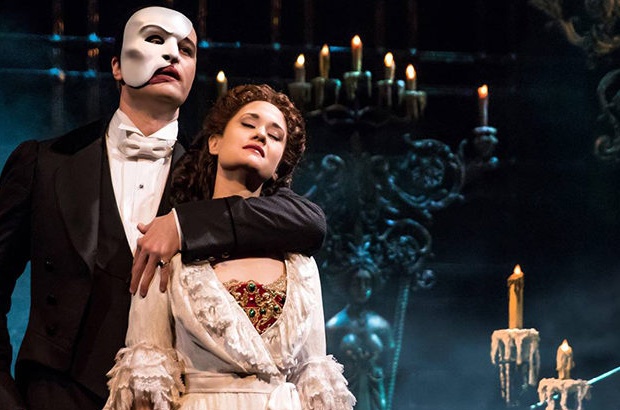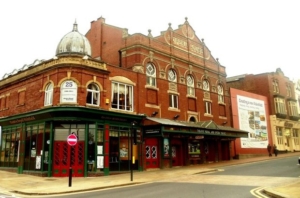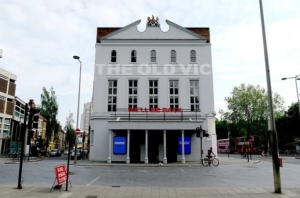ISABELLE OSBORNE discusses how the closure of Phantom of the Opera is a dark omen for the future of British theatrical companies
Since 1986, Andrew Lloyd Webber’s masterpiece The Phantom of the Opera has delighted audiences across generations with its timelessly beautiful story and exquisite music. It is no surprise, therefore, that producer Cameron Mackintosh’s declaration that the musical has been forced to close permanently on the West End has come as a tragic shock to both the industry and lovers of theatre.
Closing Phantom arguably marks the end of the golden age of West End theatre. As London’s second-longest-running musical, Phantom has withstood many challenging times, such as the 2008 financial crisis that saw a huge economic downturn. Yet after 33 years of theatrical prowess, the show has finally met its match with COVID-19 restrictions. The government-imposed coronavirus restrictions have been of severe detriment to the theatre industry, threatening the theatrical experience for theatregoers and robbing countless actors, dancers and theatre staff of their livelihoods.
Despite being ‘determined’ to bring his show back to London in the future, Lloyd Webber stated that to do so with social distancing restrictions would be an act of ‘artistic and commercial bankruptcy’. This was after he hosted a socially-distanced performance at the London Palladium, which saw only 500 of the 2,000 seats filled. Mackintosh – a renowned theatre producer – agreed that it would be ‘a disaster’ to open theatres in the current climate.
With no set date for the reopening of theatre venues, and social distancing to be in place at least until November, the theatre industry is severely at risk. Mackintosh claims that it will take the industry ‘at least four months to remount our productions, rebuild our advance bookings and public confidence and bring our artists back to performance pitch’, concluding that if the government cannot support the re-opening of box offices by November, it will be summer 2021 before theatres can open.
Whilst the virus may be unselective in choosing its victims, it seems the government is not when choosing its financial victims, and is failing to live up to its promises of supporting the theatre industry in the current climate. Oliver Dowden, the Culture Secretary, may have claimed that ‘Our arts and culture are the soul of our nation’, yet Mackintosh reminds us that the help offered by the £1.57 billion rescue fund for the arts ‘still hasn’t materialised’. Prioritising sporting events over the arts is a painful indication that the beloved theatre industry and its professionals are dispensable in the government’s eyes.
Theatre Royal Wakefield – Image Source: Wikimedia
If Phantom, a timeless classic that is the embodiment of West End success, has been forced to close its doors, what hope is there for the smaller, regional companies that lack the same exposure as shows owned by theatre tycoons such as Mackintosh and Lloyd Webber? Already, theatres have declared they will not re-open until Spring 2021 due to the uncertainty of the proposed rescue fund. Katie Town, Executive Director of the Theatre Royal Wakefield, announced it will not re-open for live performances until Spring 2021. This is not only because “we still have no clear idea when we will be able to re-open for public performances”, but also as “the process for accessing the £1.57bn of emergency funding for the arts has only just been unveiled, we feel that the risk of proceeding at this stage is simply too high.” This is a painful reminder that the permanent closure of theatres is becoming all too real.
It is not just the smaller theatres that fear permanent closure. Shakespeare’s Globe, a world-renowned theatre and a beacon of British culture, has appealed for donations on its website. Being a charity it receives no regular government subsidy and has been unable to qualify for any of the £160 million of emergency funding. Failure to compensate for COVID-related closures threatens its ability to re-open in the future, and so the country is at risk of losing another iconic culture staple.
The theatre offers audiences a sense of escapism from the harshness of reality, and in a time of severe crisis as we are facing today, it is possible that this escapism has never been more desired. The National Theatre’s streaming of shows on YouTube and the showcasing of Hamilton on Disney+ were heartwarming gestures, but nothing can replace the unique experience of sitting in a plush red seat surrounded by thousands of fellow theatre-lovers. Talks of staggered entry times, temperature testing and distanced seating suggest the industry is remaining optimistic, but simultaneously highlights COVID-19 will continue to rob the country of the delights of theatre, until the spread of infection has been controlled.
The Old Vic during National Lockdown – Image Source: Wikimedia
The closing of The Phantom of the Opera exposes the fragility of the industry, its endurance remaining all the more precarious. As Mackintosh and Lloyd Webber – two of the theatre industry’s distinguished figures – regrettably close one of their most treasured shows, it may be that the rest of us face the reality that our favourite pastime may not survive the pandemic.
Empty seats in empty theatres are a ghostly reminder of the challenges the arts and culture sector continues to face amidst the public health crisis. I ask the question: will the show ever go on?
Featured Image Source: www.broadwaydirect.com







